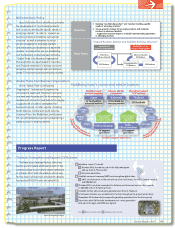Isuzu 2013 Annual Report Download - page 21
Download and view the complete annual report
Please find page 21 of the 2013 Isuzu annual report below. You can navigate through the pages in the report by either clicking on the pages listed below, or by using the keyword search tool below to find specific information within the annual report.
Annual Report 2013
19
5. Suppliers and other providers of parts, materials, etc.
The Isuzu Group sources the raw materials, components, and
products required for production from outside suppliers. Should
supply-demand conditions significantly exceed suppliers’ capacity,
or should that capacity be dramatically reduced due to an accident
or other unforeseen contingency affecting supplier facilities, it
is possible that Isuzu may be unable to source these items in
sufficient volume. Shortages or delays in the supply of parts and
other materials could have a negative impact on the Group’s
performance and financial position. It is also possible that a tight
supply-demand situation would result in price increases for raw
materials and other supplies, which could also have a negative
impact on the Group’s performance and financial position
by triggering rising costs if the increases cannot be absorbed
internally, for example through improved productivity, or passed
on to sales prices.
6. Product defects
At its plants both inside and outside Japan, the Isuzu Group
manufacturers products according to the strictest globally
accepted quality control standards. However, in the unusual
event of a large-scale recall or product liability award (the Group
is covered by product liability insurance, but in the case of costs
exceeding insurance coverage), there could be a negative impact
on the Group’s performance and financial position.
7. Joint ventures
The Isuzu Group engages in business in some countries in the
form of joint ventures due to legal and other requirements in
those countries. Changes in the management policy, operating
environment, etc., of these joint ventures could affect their
performance, which could in turn produce a negative impact on
the Group’s performance and financial position.
8. Disasters, power outages, and other interruptions
Although the Isuzu Group regularly conducts disaster
prevention inspections and facilities examinations at all sites in
order to minimize the potential of a negative impact due to an
interruption in the manufacturing process, it may not be possible
to completely eliminate or minimize the impact that would arise
from a disaster, power outage, or other interruption.
Additionally, a new H1N1 virus or other infectious disease
pandemic could pose significant obstacles to the Group’s
production and sales activities.
9. Securities investments
The Isuzu Group invests in securities to produce, sell, and
distribute its products as well as to build and maintain good
relationships with its business partners. For marketable securities,
a downturn in share prices could have a negative impact on the
Group’s performance and financial position. Isuzu provides advice
on appropriate management to companies, including those in
which it has invested through non-marketable securities. However,
if the financial condition of the companies in which Isuzu has
invested were to deteriorate due to factors such as a worsening
business environment, this could have a negative impact on the
Group’s performance and financial position.
10. Fluctuations in accounting estimates
The Company develops “retirement obligations,” “deferred
tax assets,” and other estimates as necessary in compiling its
consolidated financial statements in line with rational standards.
However, due to the uncertain nature of estimates, actual results
may vary from estimated amounts, and this could have a negative
impact on the Group’s performance and financial position.
11. Potential risks associated with international activities
and foreign ventures
The Isuzu Group conducts some of its manufacturing and
marketing activities outside of Japan, in the U.S. and in developing
and emerging markets in Asia. The following risks are inherent in
such overseas business development and could have a negative
impact on the Group’s performance and financial position:
•
Unfavorable changes in the political or business climate
•
Difficulties in recruiting and retaining personnel
•
Inadequate technological infrastructure could have a negative
impact on the Group’s manufacturing activities or its
customers’ support of its products and services
•
Potential negative tax consequences
•
Social unrest stemming from terrorism, war, or other factors
12. Limits on intellectual property protection
The Isuzu Group has accumulated technology and expertise
that differentiate it from its rivals; however, in certain regions
due to legal restrictions the Group is unable to fully protect, or
can only partly protect, its proprietary technology and expertise
through intellectual property rights. As a result, the Group may
be unable to effectively prevent third parties from using its
intellectual property to make similar products.
13. Legal requirements
The Isuzu Group is subject to various government regulations
in the countries in which it does business, such as business and
investment approvals, statutes related to national security, tariffs,
and other import and export regulations. The Group is also
subject to legal requirements concerning areas such as commerce,
antitrust, patents, consumer rights, taxation, foreign exchange,
environment conservation, recycling, and safety. Unexpected
changes in these regulations could have a negative impact
on the Group’s performance and financial position. Exhaust
emissions regulations are generally being tightened amid growing
environmental awareness. Since substantial investment is required
to comply with these regulations, failure to generate sufficient
sales to recover this investment could have a negative impact on
the Group’s performance and financial position.
14. Impact of power supply constraints against the backdrop
of the debate about nuclear power safety
Constraints on the use of electric power and increases in the
cost of power may drive up the Group’s costs and have a negative
impact on its production and sales activities.
























